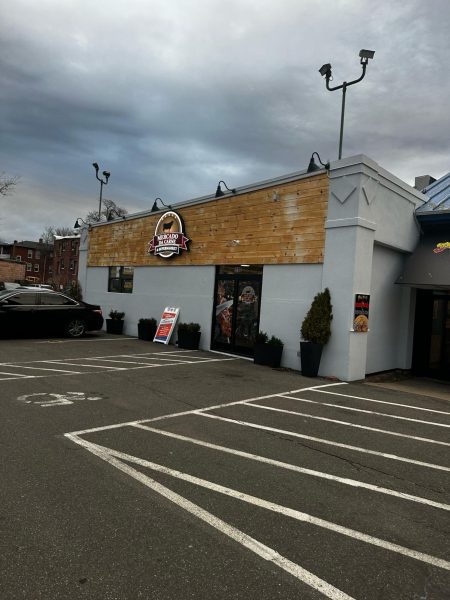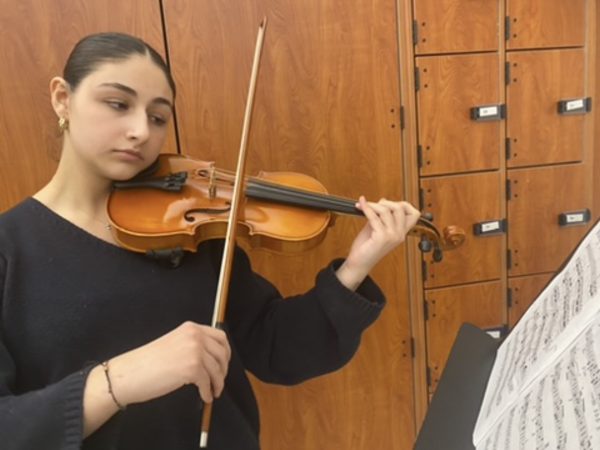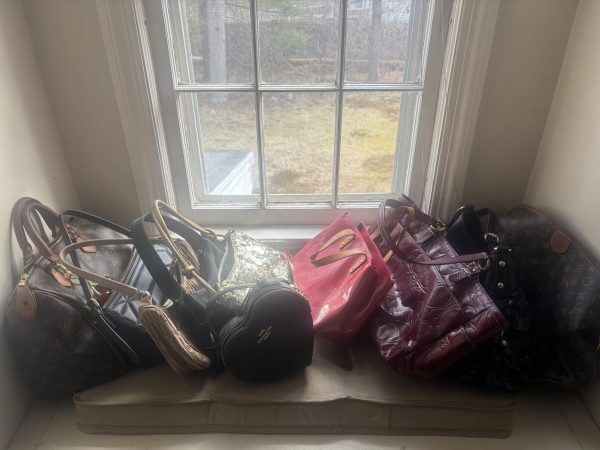COVID and the Race to College
COVID-19 has made many of our lives miserable. We have an entirely new system of school, we’re largely limited in the activities we can participate in, and we are at huge risk of getting a vicious disease. But as Dan Zittoun, the principal of Hall High School says, let’s “focus on the hope.”
Obviously, we have the new hybrid 2.0 learning system, where half the schools continue to stay home and learn online while the other half has in-person learning. This system alternatives every week, so many classes are adopting an asynchronous work cycle. Now, our new educational system has experienced a lot of controversies, to the point where a Conard student initiated a petition against the 2.0 mode, one that has garnered over 2,500 signatures; is this model an effective alternative to traditional high school?
Staying home half the time can have some nice perks, but is it worth forsaking half our education? Some students may appreciate this new way of life, while others may not. But common themes among all students in this precarious time are stress and uncertainty. Many students are going through incredible amounts of pressure and anxiety right now while families are going through many economic and health struggles: unemployment, immune deficiency and other corona-related illnesses permeate through Connecticut households. But the West Hartford community has united in facing these problems together. The way in which Hall students had to transition from an educational system that they’ve used for almost 2 decades to an entirely new online system is incredible and it shows how difficult adapting to COVID life is.
Another huge downside to COVID is for seniors, specifically because they are preparing for colleges now. In a survey where I asked seniors to reflect upon their experience applying for colleges this year, nearly ¾ of the respondents said that COVID-19 has a negative effect on their application process. There are three main ways in which COVID has affected Hall seniors in the application process: college visits, teacher guidance, and resumes. In the survey, nearly 90% of the respondents said that they have a significantly harder time deciding what college to even apply to.
Senior Alex Mogel said in an interview, “Going to physical college campuses has been one of the biggest changes. Almost all campuses were closed … and I couldn’t get a better feel” for the colleges. This sentiment has been echoed by many other seniors. One other survey respondent even referred to some of the college campuses as “ghost towns” due to a lack of students.
Another huge change that seniors are undergoing is teacher guidance. A myriad of survey respondents said that during these weird times, it’s very difficult to get help and support from their teachers. Part of this is because of the fact that we only get to see the teachers a few times every 2 weeks, half of which is online. The hybrid 2.0 online system makes it hard to connect with teachers and get their opinions and advice. Additionally, many students applying to colleges now didn’t even get a chance to take Junior Planning, which many juniors and seniors depend on during their college application preparation.
The last part on how COVID has affected seniors are resumes, extracurricular activities, and standardized tests. Purely from an academic standpoint, resume building is a lot harder for seniors this year. And this is not to mention the stress that they’ve accumulated over the last several months, as well as the fact that some seniors might not even be able to go to college next year because they might’ve wanted to study at a university in a different country.
Mogel says, “the uncertainty with the SAT/ACT and the myriad of cancellations made looking for colleges more difficult.” Since the outbreak of the coronavirus, several important standardized tests have either been canceled or postponed. While some students acknowledge that the test-optional aspect of applications has been a nice stress alleviator, many seniors still want to use their standardized test scores as a way to indicate their potential and help them decide what colleges to apply to.
As one survey respondent said, “[my] spring and summer [SAT] tests were canceled, and as a result, I won’t be able to super score my score.” And other students who have been scheduled to take the ACT in the near future because their previous exams were canceled are now in a tight spot because they won’t get their scores before the early action deadlines.
Standardized tests are not the only thing being negatively affected by COVID. “The pandemic has taken away many extracurricular opportunities I was planning on doing in the spring and summer to show my passion for a subject,” one student said. Many sports and extracurriculars have been canceled since last spring, and as a result, many high schoolers are barred from participating in the activities that they love. This problem is exacerbated for many seniors who now don’t have the opportunity to show their potential and dedication to a particular extra-curricular. “The amount of productivity and display of talent I can do at home is limited,” one respondent says. All in all, COVID has made many aspects of the college application process much more difficult.
One survey respondent had an interesting take on COVID. While they acknowledged that COVID is directly affecting their application process in a negative way, they brought up one benefit of it as well. Essays are one of the most important components of college applications, and as this respondent said, “it is beneficial to have something so contemporary to talk about.” Due to the magnitude of this global virus, everyone is learning to acclimate to our new environment. Because our generation has never experienced an event of this gravity, COVID can be used as a way to learn how to adapt to such a massive change, an ability that will prove useful later on in our lives.
In retrospect, the way the West Hartford community has managed to cope with COVID-19 is very impressive. Mr. Zittoun said in his interview, “I couldn’t have been more proud of the students’ and community’s resilience and adaptability.” Hall’s students have been able to efficiently learn an entirely new cohort system and learn the schedule during a time when it’s so easy to get confused and delayed. But importantly, “[f]ind the positives,” he says. With COVID, we should find the good things and focus on that instead of the negatives. With the small amounts of education and class content that students are sacrificing, “[they] are getting time-management, resiliency, independence [skills], etc, which are” important skills for students to have in the future. As for seniors applying to colleges this year, be at ease. Don’t worry about the possibility that getting into colleges might be harder this year. “If your profile gets you into a particular school, you’re probably going to get into that school,” Mr. Zittoun says.
Mr. Zittoun emphasizes one major idea: “breath,” he says. “Focus on today and focus on what we can control.” As students, we can create our own situations; we can create our own paths to success. Whether you get into your dream school or get into a school that you never thought you’d ever go to, you can always find happiness. At the end of the day, with a positive mindset, we’ll be okay.





